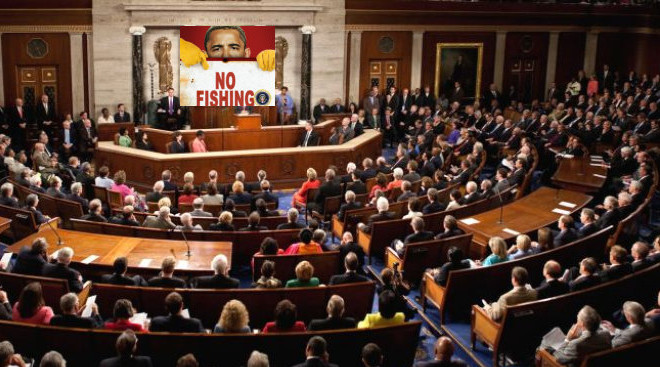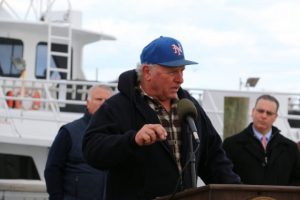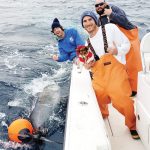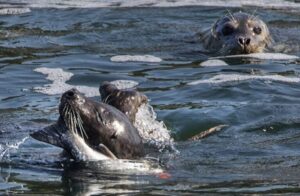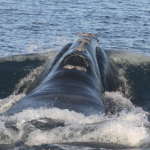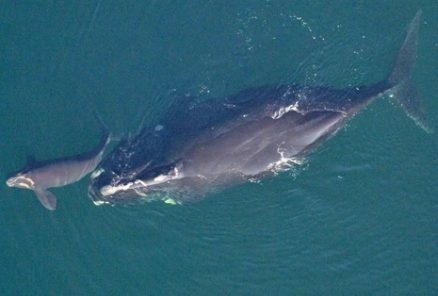Tag Archives: magnuson-stevens-fishery-conservation-and-management-act
State legislators call on Brown to declare crab fishery disaster
A group of nine California legislators sent a bipartisan letter to Gov. Jerry Brown on Monday calling for him to declare a crab fishery disaster in order to help secure financial assistance for the state’s impacted fishing industry. The state legislators’ letter urges Brown to ask U.S. Secretary of Commerce to declare a fishery disaster through the National Oceanic and Atmospheric Administration. If approved, the designation would allow the federal government to issue disaster assistance as allowed under two federal statutes — the Magnuson-Stevens Fishery Conservation and Management Act and the Interjurisdictional Fisheries Act. Read the article here 08:20
Nils Stolpe: While it’s called fishery management, it’s not even close – Managing fishing, not fish
“At the global scale, probably the one thing currently having the most impact (on the oceans) is overfishing and destructive fishing gear.” (former National Oceanic and Atmospheric Administration head Jane Lubchenco in an interview on the website Takepart.com on April 7, 2010.) The Deepwater Horizon oil spill catastrophe began on April 20, less than two weeks later. Each year in the U.S. hundreds of millions of tax dollars are spent on what is called fishery management. It’s called fisheries management in the Magnuson-Stevens Fishery Conservation and Management Act. Read the article here 19:14
Our View: Fishery management needs balance
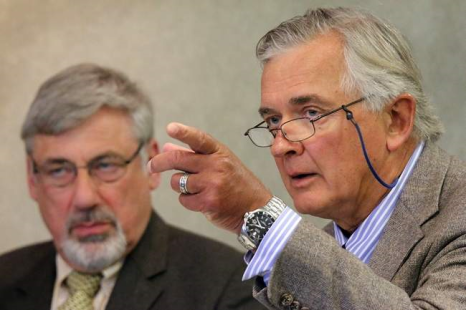 The requirement for consistency, above, might explain why Greater Atlantic Regional Administrator John Bullard told Rep. Ayotte that “eliminating overfishing” supersedes all other priorities. The Standard-Times is having a very difficult time trying to understand why a policy that will have such a clear negative impact on fishermen is being instituted when the beneficial impact on the resource — the fishery — is so unclear. Stock assessments are still determined by limited statistical sampling, which in addition to providing disputed results on stock health,,, Read the rest here 11:31
The requirement for consistency, above, might explain why Greater Atlantic Regional Administrator John Bullard told Rep. Ayotte that “eliminating overfishing” supersedes all other priorities. The Standard-Times is having a very difficult time trying to understand why a policy that will have such a clear negative impact on fishermen is being instituted when the beneficial impact on the resource — the fishery — is so unclear. Stock assessments are still determined by limited statistical sampling, which in addition to providing disputed results on stock health,,, Read the rest here 11:31
Your Definition of Bycatch is Most Likely Incorrect
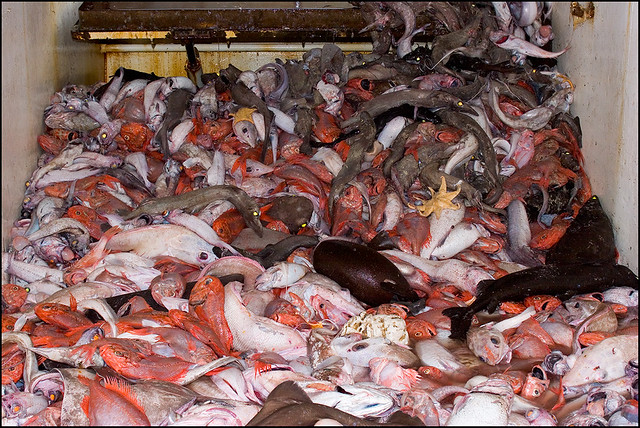 So why is this important? One reason it’s important is because when the world’s largest ocean conservation organization does not understand what bycatch even is, then we have a very big problem. When ocean conservation organizations do not understand what bycatch is, it can lead to scientifically flawed statistics published in reports such as “Wasted Catch” which only amplify the confusion by spreading misinformation about responsible U.S. fisheries to the mass general public. Read the rest here 16:59
So why is this important? One reason it’s important is because when the world’s largest ocean conservation organization does not understand what bycatch even is, then we have a very big problem. When ocean conservation organizations do not understand what bycatch is, it can lead to scientifically flawed statistics published in reports such as “Wasted Catch” which only amplify the confusion by spreading misinformation about responsible U.S. fisheries to the mass general public. Read the rest here 16:59
House committee takes up fisheries bill today
 The U.S. House Committee on Natural Resources will take up a bill Thursday that could potentially change the way fisheries are managed in the U.S. through an amendment to the Magnuson-Stevens Fishery Conservation and Management Act. Yes. For the better! “We’ve been working for seven years to get some flexibility in the Magnuson-Stevens Act,” (Pam) Anderson said. “It’s desperately needed.” Read the rest here 08:08
The U.S. House Committee on Natural Resources will take up a bill Thursday that could potentially change the way fisheries are managed in the U.S. through an amendment to the Magnuson-Stevens Fishery Conservation and Management Act. Yes. For the better! “We’ve been working for seven years to get some flexibility in the Magnuson-Stevens Act,” (Pam) Anderson said. “It’s desperately needed.” Read the rest here 08:08
Omnibus Habitat Amendment 2 – Our View: Lift fishery restrictions to do good for all
 The New England Fishery Management Council votes this week on recommendations by the council’s Habitat Committee to lift restrictions in three closed areas. NOAA
The New England Fishery Management Council votes this week on recommendations by the council’s Habitat Committee to lift restrictions in three closed areas. NOAA Fisheries Regional Administrator John Bullard and at least one environmental group are arguing against it because NOAA scientists are saying it would harm important spawning areas for species like cod, haddock and yellowtail flounder. (Which is bull shit!) Read the rest here 08:41
Fishing industry takes PBS to task for misleading promotion
 In a letter to Paula A. Kerger, President and CEO of Public Broadcasting Service (PBS) which is attached and pasted below, the Seafood Coalition pointed out the inappropriateness of a publicly funded network using glaring distortions to hype an upcoming PBS miniseries. From the letter, “researcher Jeremy Jackson indicted by implication every U.S. fisherman – recreational, commercial, or party/charter – and the federal fisheries management system that we are and have been heavily invested in making the best in the world since the passage of the Magnuson-Stevens Fishery Conservation and Management Act in 1976.” Read the letter here An Interview with Jeremy Jackson, Renowned Oceanographer PBS Trailer Click Here 19:49 photo credit ocean.si.edu 19:55
In a letter to Paula A. Kerger, President and CEO of Public Broadcasting Service (PBS) which is attached and pasted below, the Seafood Coalition pointed out the inappropriateness of a publicly funded network using glaring distortions to hype an upcoming PBS miniseries. From the letter, “researcher Jeremy Jackson indicted by implication every U.S. fisherman – recreational, commercial, or party/charter – and the federal fisheries management system that we are and have been heavily invested in making the best in the world since the passage of the Magnuson-Stevens Fishery Conservation and Management Act in 1976.” Read the letter here An Interview with Jeremy Jackson, Renowned Oceanographer PBS Trailer Click Here 19:49 photo credit ocean.si.edu 19:55
Tomorrow’s Catch: A Proposal to Strengthen the Economic Sustainability of U.S. Fisheries – Costello
 This proposal calls for an amendment to the Magnuson-Stevens Fishery Conservation and Management Act, the federal law currently guiding the management of U.S. fisheries, that would, for certain fisheries, require transparent comparison of the economic, social, and ecological trade-offs between status quo management and these alternatives. Read the rest here Full paper here 14:49
This proposal calls for an amendment to the Magnuson-Stevens Fishery Conservation and Management Act, the federal law currently guiding the management of U.S. fisheries, that would, for certain fisheries, require transparent comparison of the economic, social, and ecological trade-offs between status quo management and these alternatives. Read the rest here Full paper here 14:49
Final Amendment 7 to the 2006 Consolidated Highly Migratory Species Fishery Management Plan
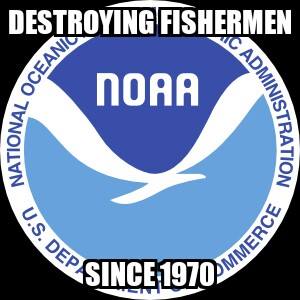 The Final Environmental Impact Statement (FEIS) for Amendment 7 to the 2006 Consolidated Atlantic Highly Migratory Species (HMS) Fishery Management Plan (FMP) is now available. Amendment 7 is intended to meet several objectives, which are driven by statutory mandates under the Magnuson-Stevens Fishery Conservation and Management Act and the Atlantic Tunas Convention Act, including to: Read more here 16:41
The Final Environmental Impact Statement (FEIS) for Amendment 7 to the 2006 Consolidated Atlantic Highly Migratory Species (HMS) Fishery Management Plan (FMP) is now available. Amendment 7 is intended to meet several objectives, which are driven by statutory mandates under the Magnuson-Stevens Fishery Conservation and Management Act and the Atlantic Tunas Convention Act, including to: Read more here 16:41
Rhode Island Seeks to Join Mid-Atlantic Council, but Politics are in Play
 The Ocean State has no voice in governance, despite being a major player in those waters. A Case of Political Failure? Richard L. Fuka, president of the Rhode Island Fishermen’s Alliance, says the problem is inherently political—perhaps due to the current Democratic presidential administration, and certainly the ineffectiveness of Rhode Island’s congressional delegation. He particularly called out Sen. Jack Reed, who he feels should be able to get things done after his long tenure in Washington. Read the article here 20:24
The Ocean State has no voice in governance, despite being a major player in those waters. A Case of Political Failure? Richard L. Fuka, president of the Rhode Island Fishermen’s Alliance, says the problem is inherently political—perhaps due to the current Democratic presidential administration, and certainly the ineffectiveness of Rhode Island’s congressional delegation. He particularly called out Sen. Jack Reed, who he feels should be able to get things done after his long tenure in Washington. Read the article here 20:24
Committee Approves Strengthening Fishing Communities and Increasing Flexibility in Fisheries Management Act
 Today the House Natural Resources Committee approved H.R. 4742, the Strengthening Fishing Communities and Increasing Flexibility in Fisheries Management Act by a bipartisan vote of 24-17. This legislation would renew and amend the Magnuson-Stevens Fishery Conservation and Management Act (last reauthorized in 2006 and expired in 2013) to ensure that this fundamentally sound legislation works in the best interest of both fish and fishermen. Read more here 14:56
Today the House Natural Resources Committee approved H.R. 4742, the Strengthening Fishing Communities and Increasing Flexibility in Fisheries Management Act by a bipartisan vote of 24-17. This legislation would renew and amend the Magnuson-Stevens Fishery Conservation and Management Act (last reauthorized in 2006 and expired in 2013) to ensure that this fundamentally sound legislation works in the best interest of both fish and fishermen. Read more here 14:56
MSA: Finding Win-Win Outcomes For Conservation And Utilization
The economic importance of the U.S. fishing industry cannot be overstated. The survival of many coastal communities largely depends on whether Congress and fishery managers can establish policies allowing fisheries to generate yield over the long term, rebuild overfished stocks and achieve the conservation objectives of the MSA. Read more here 09:05
The Magnuson Act: It’s a Keeper
Healthy oceans and well-managed fisheries improve coastal economies, enhance recreational fishing opportunities and provide fresh, local seafood to consumers. And while many fisheries,,, Read more here 18:04
National Marine Fisheries Service violated law – Federal Ruling on Allocation Favors Gulf Commercial Red Snapper Fishermen
 Federal Ruling on Allocation Favors Gulf Commercial Red Snapper Fishermen A federal ruling has been handed down that the U.S. government violated the law by failing to properly manage the Gulf of Mexico Red Snapper fishery. Read more here 16:16
Federal Ruling on Allocation Favors Gulf Commercial Red Snapper Fishermen A federal ruling has been handed down that the U.S. government violated the law by failing to properly manage the Gulf of Mexico Red Snapper fishery. Read more here 16:16
Chairman Hastings Seeks Public Input on Draft Plan to Strengthen and Improve our Nation’s Fisheries
 WASHINGTON, D.C., December 19, 2013 – House Natural Resources Committee Chairman Doc Hastings (WA-04) today unveiled a draft proposal to reauthorize the Magnuson-Stevens Fishery Conservation and Management Act, which was last authorized by Congress in 2006 through fiscal year 2013. The draft proposal, H.R. ____ Strengthening Fishing Communities and Increasing Flexibility in Fisheries Management Act, would renew and amend the Magnuson-Stevens Act – which governs the recreational and commercial harvest of fisheries in Federal waters – to implement common sense reforms that will promote increased flexibility and transparency, improve data collection, create jobs, and give predictability and certainty to the coastal communities that depend on stable fishing activities. Click here for a copy of the draft proposal. [email protected] 14:15
WASHINGTON, D.C., December 19, 2013 – House Natural Resources Committee Chairman Doc Hastings (WA-04) today unveiled a draft proposal to reauthorize the Magnuson-Stevens Fishery Conservation and Management Act, which was last authorized by Congress in 2006 through fiscal year 2013. The draft proposal, H.R. ____ Strengthening Fishing Communities and Increasing Flexibility in Fisheries Management Act, would renew and amend the Magnuson-Stevens Act – which governs the recreational and commercial harvest of fisheries in Federal waters – to implement common sense reforms that will promote increased flexibility and transparency, improve data collection, create jobs, and give predictability and certainty to the coastal communities that depend on stable fishing activities. Click here for a copy of the draft proposal. [email protected] 14:15
Warren set to host fishing reform hearing today
![]() The hearing — which will also include Sen. Mark Begich, D-Alaska, chairman of the Senate Subcommittee on Oceans, Atmosphere, Fisheries, and Coast Guard — is designed to rein in input from fishermen and industry advocates. Among those scheduled to testify include Brian Rothschild, who has headed up the University of Massachusetts-Dartmouth marine science program and is recognized as one of the most respected and leading advocates for fishermen and the fisheries. more@GDT 06:54
The hearing — which will also include Sen. Mark Begich, D-Alaska, chairman of the Senate Subcommittee on Oceans, Atmosphere, Fisheries, and Coast Guard — is designed to rein in input from fishermen and industry advocates. Among those scheduled to testify include Brian Rothschild, who has headed up the University of Massachusetts-Dartmouth marine science program and is recognized as one of the most respected and leading advocates for fishermen and the fisheries. more@GDT 06:54
Two Boynton Beach men issued fines totaling $27,500 for illegally selling a 700 giant bluefin tuna
 A Notice of Violation and Assessment of Administrative Penalty was sent to David Fidel, of Boynton Beach, who was fined $12,500 for violating the federal Magnuson-Stevens Fishery Conservation and Management Act. Mikylo Senkowicz, of Boynton Beach, who did not have a valid permit to sell the tuna and received a Notice of Violation. Fidel’s troubles began when photos of the fish and stories about the catch, and what became of it, were posted online, although they were later removed. more@sunsentinal 10:43
A Notice of Violation and Assessment of Administrative Penalty was sent to David Fidel, of Boynton Beach, who was fined $12,500 for violating the federal Magnuson-Stevens Fishery Conservation and Management Act. Mikylo Senkowicz, of Boynton Beach, who did not have a valid permit to sell the tuna and received a Notice of Violation. Fidel’s troubles began when photos of the fish and stories about the catch, and what became of it, were posted online, although they were later removed. more@sunsentinal 10:43
Expert Testifies to U.S. Senate on Commercial Fishing
USAgNet.com. – Hasbrouck urged that in considering the upcoming reauthorization of the Magnuson-Stevens Fishery Conservation and Management Act, Congress provide management flexibility. “Not all species can fully respond within an arbitrary rebuilding 10-year time frame,” he said, noting that three years was added to the summer flounder rebuilding period. continued







